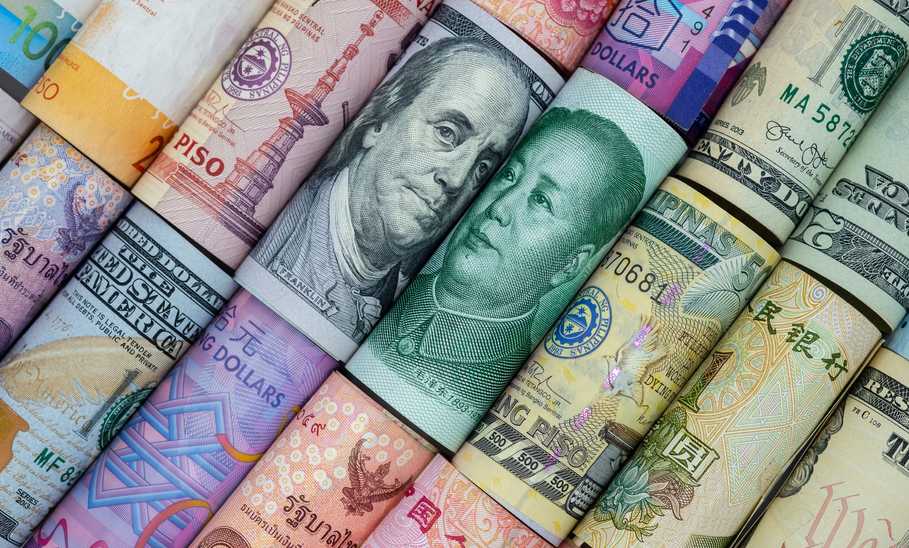Multicurrency Account: How Does It Work?

Our evaluations and opinions are not influenced by our advertising relationships, but we may earn a commission from our partners’ links. This content is created by TIME Stamped, under TIME’s direction and produced in accordance with TIME’s editorial guidelines and overseen by TIME’s editorial staff. Learn more about it.
A multicurrency account, also called a “foreign currency account,” is a bank account that's designed to hold different currencies. Instead of opening multiple bank accounts, you can send and receive funds from different currencies in one place.
Opening a multicurrency account can make sense if you run a business that sends and receives payments internationally. You can also use a foreign currency account to transfer funds among friends and family in other countries.
Here's a closer look at these accounts and when to use them.
Multicurrency bank accounts allow you to send, receive, and hold multiple currencies in one place. They offer more flexibility than a traditional bank account, which would ordinarily limit you to one currency type.
A multicurrency account can hold a variety of currencies. For example, Citibank offers 16:
Multicurrency accounts work like any other bank account in that you can deposit funds, send payments, pay bills, and make withdrawals. The difference is that when you have a multicurrency account, you can decide whether—and when—to convert funds between different currencies to take advantage of favorable exchange rates.
Depending on where you choose to open a multicurrency account, you may have debit card access to funds. Some banks, such as PNC Bank, allow you to earn interest on the balances you keep inside a foreign currency account.
Generally speaking, you might need a multicurrency account if you routinely send and receive payments in different currencies. A multicurrency account may also be appropriate in any of the following scenarios:
You don't need to open a multicurrency account to send or receive a one-time payment to another country. In such a case an international wire transfer would do the trick.
If you're interested in opening a multicurrency account in the U.S., there are a number of banks that offer them. They include:
It's worth pointing out that some of these banks, such as PNC Bank and Wells Fargo, limit foreign currency accounts to business customers only.
In addition to banks, you might consider opening a multicurrency account through a financial technology (fintech) platform. Some of the companies offering foreign currency accounts for personal use include Payoneer, Revolut, and Wise. These companies may offer lower fees and exchange rates than traditional banks.
Banks charge fees for multicurrency accounts just as they do for traditional bank accounts. These fees vary by bank and may include:
When considering fees, it helps to compare them with what you might pay for other transfer methods. For instance, international wire transfer fees can get quite expensive, with some banks charging as much as $50 per transfer. You may find that the fees associated with a multicurrency account would cost you less than you'd pay to transfer funds or receive them via a different method.
The first step to opening an account is finding a financial institution or fintech company that offers one. As mentioned, fees are an important consideration for choosing a multicurrency account, but it's also helpful to consider:
Next, you'll need to confirm with the bank that you're eligible to open a multicurrency account. At a minimum you'll need to be at least 18 years old, but banks may impose other requirements as well. For example, you may be required to own a business or have a certain net worth in order to open one of these accounts. You may also have to live in an eligible country if the bank restricts access to these accounts to people in certain locations.
Once you meet the bank's account-opening requirements, you fill out an application and any other paperwork needed to open the account. This includes providing proof of your identity. You then fund your account with a minimum opening deposit.
Keep in mind that the minimum deposit or balance requirements for a multicurrency account may be much higher than for a traditional checking or savings account. For example, Citibank requires $200,000 to get started.
Multicurrency accounts are just one way to send and receive payments internationally. If you don't think you need this type of account—or you don't qualify to open one—there are other options for sending and receiving payments to businesses or people outside the United States.
In place of a multicurrency account, you might consider:
Each one has pros and cons. For example, wire transfers sometimes entail steep fees. PayPal payments are fast, but not available in every country. Western Union doesn’t always offer the best exchange rates. Mailed checks can be lost or stolen.
If you simply need to be able to spend money in another country while traveling, a credit card that doesn’t charge foreign transaction fees might meet your needs. These cards let you make purchases outside of your home country without having to pay an added fee for the privilege.
Opening a multicurrency account is worth considering if you run a business or have another situation where you regularly send and receive money in different currencies. Given the extra costs and complications associated with these accounts, it's especially important to research the options available and determine whether this choice is the most appropriate solution for you.
If you regularly transact international payments in more than one currency, a multicurrency account may be an efficient and cost-effective means of doing so. It allows you to keep and send a variety of currencies in and from one bank account.
In a word, no. The minimum opening deposit can be as high as $200,000. Some banks only allow them as business accounts. Personal accounts can have age and residency requirements.
This depends on volume. A single international wire transfer can cost as much as $50. However, the service fees on a multicurrency account can add up quickly. Generally, an account may be better if you transact a high volume of business on a regular basis.
Both banks and fintech platforms offer multicurrency accounts. The former include Citibank, East West Bank, EverBank, HSBC, PNC Bank, and Wells Fargo, while the latter include Payoneer, Revolut, and Wise.
The information presented here is created by TIME Stamped and overseen by TIME editorial staff. To learn more, see our About Us page.



